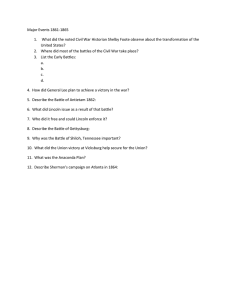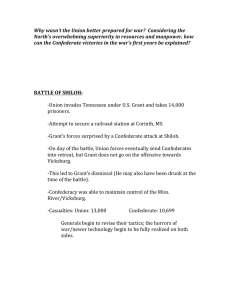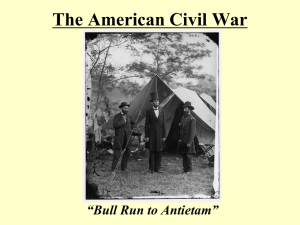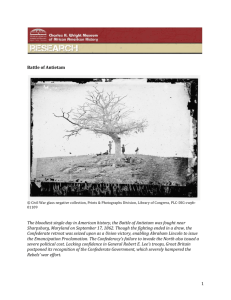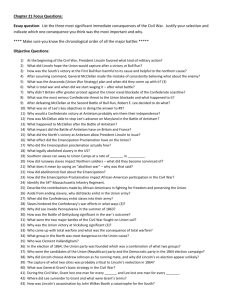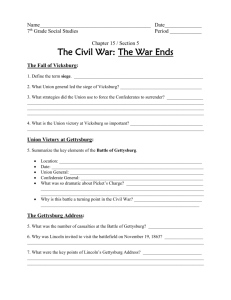The Battle of Antietam
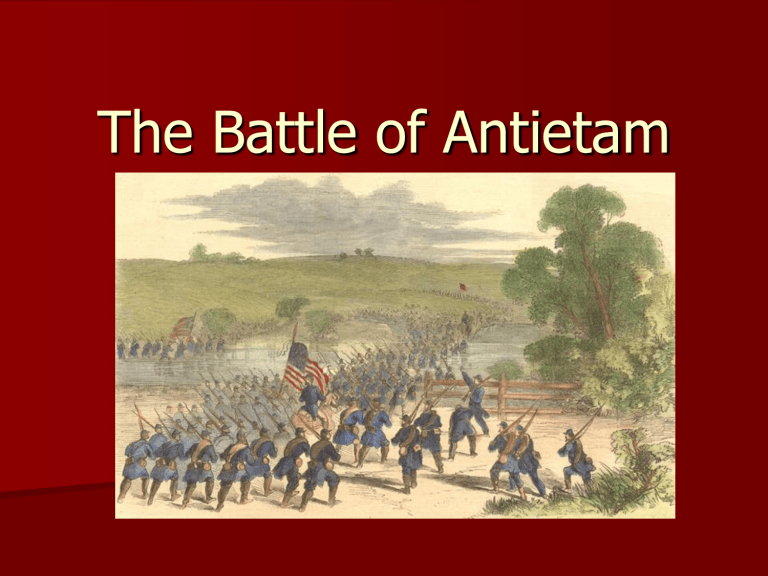
The Battle of Antietam
Antietam
Fought on September 17,
1862, near Sharpsburg,
Maryland, and Antietam
Creek, as part of the
Maryland Campaign, was the first major battle in the American Civil War to take place on Northern soil. It was the bloodiest single-day battle in
American history, with about 23,000 casualties.
Antietam
Losses for the day were heavy on both sides. The Union had 12,401 casualties with 2,108 dead. Confederate casualties were 10,318 with 1,546 dead. This represented 25% of the Federal force and 31% of the
Confederate.
Antietam
Despite having superiority of numbers, McClellan's attacks failed to destroy
Lee's army. Nevertheless,
Lee's invasion of Maryland was ended; but, he was able to withdraw his army back to Virginia without interference from the cautious McClellan.
Although the battle was tactically inconclusive, it had unique significance as enough of a victory to give President Abraham
Lincoln the confidence to announce his
Emancipation
Proclamation.
Antietam is considered a turning point of the war and a victory for the Union because it ended Lee's strategic campaign (his first invasion of the North) and it allowed
President Lincoln to issue the Emancipation Proclamation on September 22, which took effect on January 1, 1863.
Although Lincoln had intended to do so earlier, he was advised by his Cabinet to make this announcement after a
Union victory to avoid the perception that it was issued out of desperation.
The Union victory and Lincoln's proclamation also played a considerable role in dissuading the governments of France and Britain from sending aid to the Confederacy.
Battle of Vicksburg
In May and June of 1863,
Maj. Gen. Ulysses S.
Grant’s armies converged on Vicksburg, investing the city and entrapping a
Confederate army under
Lt. Gen. John Pemberton
.
Vicksburg
On July 4, Vicksburg surrendered after prolonged siege operations. This was the culmination of one of the most brilliant military campaigns of the war. With the loss of
Pemberton’s army and this vital stronghold on the
Mississippi, the Confederacy was effectively split in half.
Vicksburg
With the Mississippi under
Union control – it was almost impossible for the
Confederate Army to get supplies and troops from the
East to the West. Grant's successes in the West boosted his reputation, leading ultimately to his appointment as General-in-
Chief of the Union armies.

